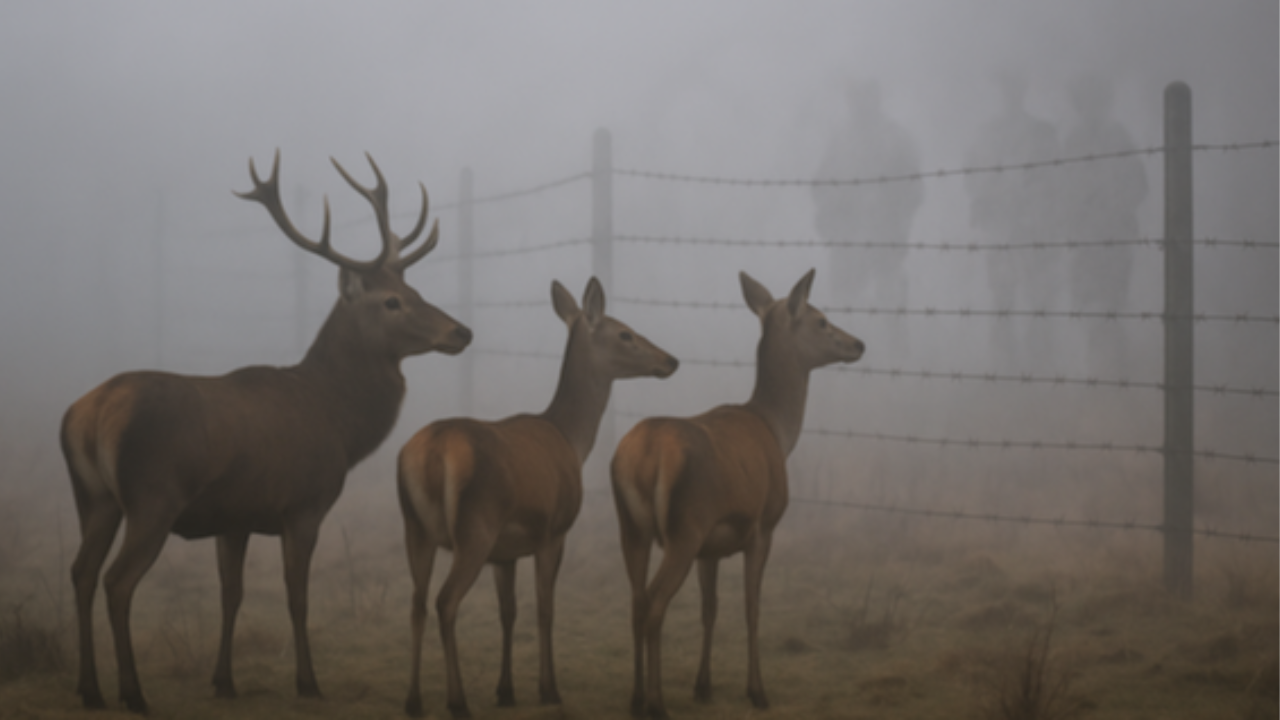Collective Consciousness: The Deer That Still Remember a Border That’s Gone
Jun 23, 2025
Some memories don’t live in the mind. It lives in families, in communities, sometimes in entire populations, passed down not through stories or photographs, but through behaviour, instinct, and caution. You won’t always hear it spoken aloud, but you can see it in the way people act. In psychology, it’s called generational trauma. In genetics, epigenetics studies how severe stress might leave a chemical imprint on how genes function, and how those imprints could be passed on. Others call it ancestral memory, or even collective consciousness, the idea that knowledge or emotion can survive without anyone consciously remembering where it came from.
As strange as it sounds, the pattern shows up again and again. People are reacting to fear, grief, or loss that they never lived through. Children of war survivors carry anxiety that seems to come from nowhere. Families are shaped by histories they don’t fully understand. Not because they were told, but because something deeper kept it alive. Not taught, just inherited, quietly, in the way people live.
But not all memory fits inside science. Some people speak of knowing things they were never told. A child with an unexplainable fear. A teenager drawn to a culture no one in their family shares. A recurring dream about a place they’ve never seen, only to find it’s real. These stories aren’t easy to dismiss. They suggest that memory doesn’t always travel through words or trauma. Sometimes it just is, carried forward in a way we don’t yet have language for.
I’ve felt it myself. I was born in England, but I always felt out of place, like something was missing, though I couldn’t explain what. Then I was fostered by an American family. I had never been to the U.S., never studied its culture beyond what made its way across the Atlantic, but everything felt familiar. The food, the voices, the pace of life. It was like stepping into a story I already knew, even though no one had ever told it to me. I didn’t just feel welcomed. I felt at home. And I’ve never been able to explain why.
Maybe it was a coincidence. Maybe it was the environment. Or maybe, on some level, something in me was already waiting to return to a place I didn’t remember ever being.
In the forests between the Czech Republic and Germany, red deer still follow a rule that no longer exists. For decades, this stretch of land was divided by the Iron Curtain, a Cold War boundary lined with electrified fences and armed patrols. Hundreds of people died trying to cross. So did animals. But the war ended. The fences came down. The forest healed. And yet, the deer won’t cross.
They weren’t there when it happened. The deer alive today were born long after the border vanished. There’s no barrier now, no wire, no guards, just open land. But still, they stay on their side, as if something unseen is still there. It feels less like instinct and more like a memory they shouldn’t have. A boundary they were never told about, but still somehow remember.
Some believe it’s an example of something deeper, a kind of inherited warning, passed along not through experience, but through something harder to define. Behaviour shaped by energy, emotion, or place. A memory without context, held in the body rather than the mind.
Researchers tracked more than 300 red deer over seven years using GPS collars. The results were consistent: Czech deer stayed on their side, German deer on theirs. There was no evidence that any animal crossed the former border. Some researchers believe the explanation is behavioural, that fawns copied their mothers, learning where to feed, where to rest, and where not to go. Over time, those choices became habit. The habit became instinct. And the original danger was forgotten, but the pattern stayed.
It’s a simple answer, but even then, it doesn’t explain everything. Why the line remains so precise. Why none of them, not one, has broken the rule. There’s no clear reason it should have lasted this long, and yet it has.
The deer don’t know what the Iron Curtain was. But something in them still tells them where not to go. And whatever that something is, instinct, fear, energy, or memory, it behaves the same way. Quiet. Unquestioned. And passed down long after the reason is gone.
Not everything we carry comes from the life we’ve lived. Some of it comes from somewhere else, passed on in silence, tucked away in behaviour or feeling. Not taught. Not explained. Just there. Waiting. And when it surfaces, it doesn’t always feel like learning something new. It feels like remembering something you didn’t know you forgot.
